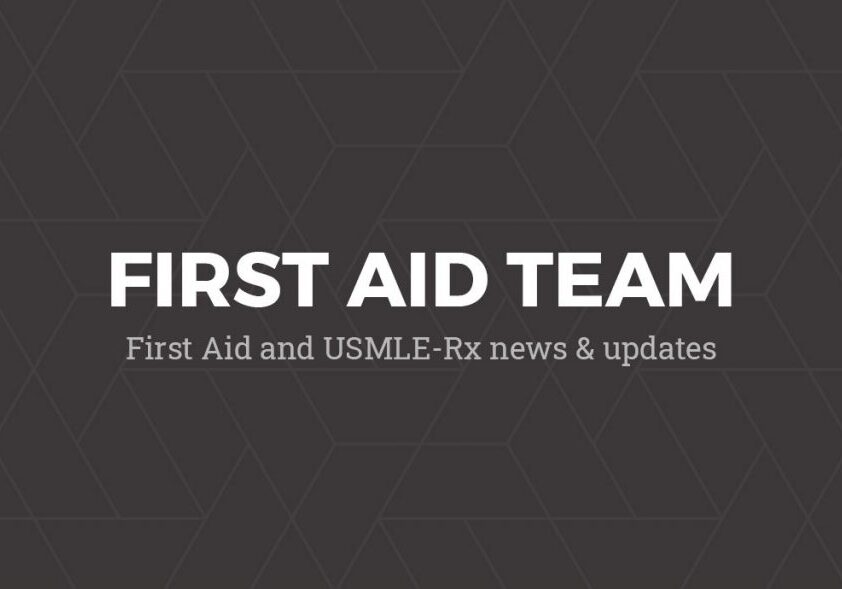By Patrick Sylvester
 As our blog editor, Walter Wiggins summarized in his post titled, Surviving Step 1: Choosing a Question Bank, there are a number of factors you should consider when choosing and incorporating a question bank into your Step 1 studying plan.
As our blog editor, Walter Wiggins summarized in his post titled, Surviving Step 1: Choosing a Question Bank, there are a number of factors you should consider when choosing and incorporating a question bank into your Step 1 studying plan.
With that said, after subscribing to your question bank of choice and beginning to craft your study plan, you may find that you are unsure about how best to incorporate a question bank into your study routine. From recent conversations that I’ve had with students in the classes below me, I’ve noticed that a couple of questions seem to keep coming up. Like all things in life, how you study is largely a matter of personal preferences, and as best as I can tell, people tend to sort themselves into two main groups:
- Those who want to use practice questions as a means of solidifying the material they’ve learned (i.e. as a learning tool)
- Those who want to use practice questions to assess the progress of their studies (i.e. testing themselves).
Let’s consider these diametric uses of question banks: addressing some of the common questions about how to incorporate these resources into your study plan. What I’d like to do is answer a set of questions in the voices of two hypothetical (and perhaps silly) personas: Learn-Along-Lenny and Test-Yourself-Tessa.
When should I begin using question banks?
Lenny: And so it begins— the idea of “saving” question banks. Personally, I don’t buy it. I’m going to need to get through all of the content in these resources eventually. I’m inclined to start using my question bank subscription towards the latter half of my second-year studies. That way, I’ll be both reviewing for my preclinical coursework, as well getting a sense of how this content will appear on the USMLE (basically killing two birds with one stone!). That way, I can roll into my dedicated study period ready to go!
Tessa: While I can appreciate Lenny’s point, I already have a fair bit of time to put towards my dedicated study period, so I’m not convinced that starting early is going to be of much benefit. If I have six weeks to study, and can get through two full blocks of 46 questions per day, assuming I even take one full day off per week, that’s enough time to get through an average size question bank 1.5x. That means after my first pass, I should have plenty of time to go through all the questions I got incorrect, and the ones I “marked.” Further, if I wait until I get through all of the content in years one and two (perhaps even after a first pass of a high-yield resource such as First Aid 2014), my performance on these practice questions will be more representative of how I’ll likely perform on the actual exam.
Timed/Untimed? Tutor/Timed Tutor? Divisions/Subdivisions? What’s it all mean, and which one should I be using?
Lenny: For example, during or immediately after my review of cardiology, I’ll select the relevant cardiology questions and use either untimed or tutor modes to ensure that I’ve mastered this content. By identifying my weaknesses, I can easily go back and review the appropriate section in my review material or add in my own notes related to these practice questions.
Tessa: I wish it were possible to take the real deal on untimed or tutor mode. Since it’s not, however, it appears to me that it would be unrealistically easy to use my question banks in this manner. And unless I’m missing something, I’m pretty sure that on test day, the blocks of my test won’t be organized by subject or discipline, and they certainly won’t be made up of questions related to topics I just studied moments prior. Therefore, in order to maximize the ability to simulate a real testing environment; I only use the timed mode, with all divisions and subdivisions selected. Now, you might be thinking, that is going to be pretty tough during the initial part of your study period. And you’re absolutely right. However, I would argue that in addition to being more realistic, this format actually helps me identify the weak points in my “knowledge-armor,” which will stick out when I’m reviewing material later (i.e. “Oh yeah, I remember when I got burned on a question about this topic…”).
Obviously, there’s a third strategy – one that incorporates both of these strategies into question bank use. However, I hope that these hypothetical characters help illustrate some of the important decisions you will need to make about how you want to use question-banks for your USMLE preparation.
Which hypothetical persona do you identify with? Feel free to share your experiences/thoughts below!




I go to see day-to-day a few sites and websites
to read posts, however this website offers quality based content.